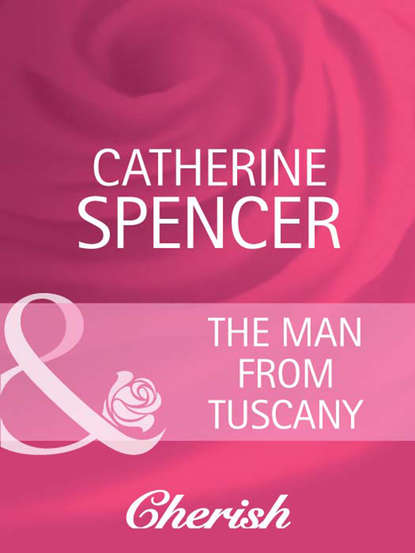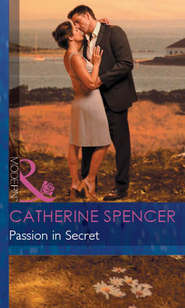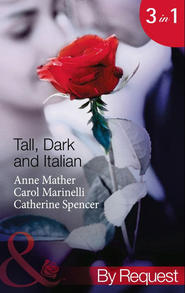По всем вопросам обращайтесь на: info@litportal.ru
(©) 2003-2024.
✖
The Man from Tuscany
Автор
Год написания книги
2019
Настройки чтения
Размер шрифта
Высота строк
Поля
But not that night. That night, I was shameless in my greed. Nothing lay beyond the pale for either of us. Touching, tasting, scrutinizing inch by inch, using words never uttered in polite society—such were the means by which we stitched together the love that had to be strong enough to survive separation.
Not that I share such intimate details with my granddaughter, of course. They belong to Marco and me.
Too soon, first light filtered through the open window. We dressed, fumbling with our clothes as if we could delay the inevitable. But there was no postponing time. A nearby church sounded five o’clock. In four hours, the taxi would come to take my aunt, my cousin and me to the train station. By the next afternoon, I would be in England; a week from then, in America, with over three thousand miles separating me from him.
At the door, I turned for one last glimpse of our hideaway. At the crushed rose petals and the tangle of sheets on the bed. At the half-empty bottle of Chianti. At the freesias perfuming the room with their scent. I knew then that I would never again smell roses or freesias, never again taste the red wine of Tuscany, and not be assailed by the poignant sadness of that moment.
When I returned to our pensione, Genevieve snuck down to let me in. “You’re cutting it fine,” she scolded. “Momma’s up already. You’re lucky she didn’t knock on our door to make sure we’re awake.” Then, seeing that I’d been crying, she hugged me and said, “Don’t mind me, Anna. You’re back now, and she’s none the wiser. Come and wash your face with cold water, or she’ll wonder why your eyes are so red.”
Her kindness started my tears flowing again. “It nearly killed me to leave him, Genevieve.”
“Don’t dwell on that,” she said briskly. “Instead concentrate on when you’ll see him again.”
“Months from now,” I wailed, stumbling over our luggage.
In fact, I saw him just a few hours later, at the railroad station. I was about to board our train when I felt a hand at my elbow. “ Posso aiutarla, signorina? May I help you?”
For a moment, I closed my eyes, afraid I was hallucinating. But the warmth in his voice, in his touch, were all too real and left me trembling. “Thank you,” I stammered. “Grazie.”
“Prego.” Marco squeezed my arm in secret intimacy, smiled into my eyes, and in a low voice added, “ Ti amo, la mia bella. Hurry back. I don’t want to be apart from you a day longer than necessary.”
“Thank you, young man. We can manage quite well,” my aunt declared, regarding him suspiciously from the top step into the train.
“Si, signora. Buon viaggio.”
“What was that about?” she sniffed, when we’d found our seats.
“He wished us a safe journey, that’s all,” Genevieve replied for me, because I couldn’t speak. I was too busy pressing my nose to the window and watching him fade into the distance as the train pulled out of the station.
Aunt Patricia hoisted her bosom into place. “Foreigners! I don’t trust them one iota. You girls might be sorry to leave Europe behind, but I can’t wait to set foot on American soil again.”
The grand tour had come to an end, and so had my idyll. As the train thundered north through Switzerland and into France, rumblings of war brought me back to a reality unlike anything I’d experienced before. Suddenly Marco’s political leanings, which he’d hinted at in passing and then casually, as if they were of no great consequence, assumed a frightening dimension.
I recalled that he and his father were outspoken critics of Benito Mussolini, Italy’s Fascist dictator and that sometimes, on those evenings when he wasn’t with me, Marco attended partisan rallies. I might have been shielded from much of the news, but even I recognized that although the sun shone on Florence and turned the River Arno into a swath of blue silk flowing smoothly under the city’s bridges, a dark underbelly existed beneath the ancient calm of the Uffizi and Pitti Palace.
“Well, no need to make yourself sick over that,” Genevieve told me, as the boat train approached Southampton. “If you must find something to keep you awake at night, worry about Hitler.”
But optimist though she was, Genevieve couldn’t help noticing the subdued atmosphere aboard the Queen Mary any more than I could. The luxury remained intact, but the laughter flowed less freely, and the young men who’d previously flirted with us on the dance floor now assumed a more solemn bearing.
“It’s not very promising over there,” they said, referring to the way events were shaping up in Germany. “They’ll be up to their necks in it before much longer.”
Over there. Synonymous with Europe and war, the term was on everyone’s lips, echoing along the Promenade Deck and infiltrating such exclusive retreats as the Verandah Grill. She tried to hide it, but Genevieve wasn’t immune to its aura of foreboding. “Not that we have anything to worry about,” she insisted when the Statue of Liberty rose up against the skyline and the tugs towed our ship to its berth in New York harbor. “Regardless of what happens over there, America won’t be involved.”
But Italy might be, I thought fearfully.
My parents were waiting at the dock. “We’re so relieved to have you home,” my mother cried, enveloping me in a hug that squeezed the breath from my lungs. “Your father and I have been frantic these past few days. We were so afraid you’d be stranded in England.”
“That wouldn’t have happened,” Aunt Patricia said. “I kept our passports and tickets on my person at all times.”
“But you must have heard,” my father told us gravely. “This was likely the Queen Mary’ s final run as a commercial passenger ship. On September first, just a day after you set sail from Southampton, Germany invaded Poland. On the third, Great Britain, France, Australia and New Zealand declared war on Germany.”
The news had reached us, but we hadn’t wanted to believe it. Unutterably dismayed, I asked, “How long before it’s over?”
He shook his head. “Who’s to say? It could be months—or years. It all depends on that madman, Hitler, and how soon they’re able to put a stop to him over there.”
Over there… Marco was over there, and I was here.
“You look faint, darling,” my mother said, stroking my face lovingly. “Were you seasick?”
“No,” I managed to say. “It’s the shock of hearing that countries we just visited are at war—except for Italy. It’s not involved, is it?”
“Not yet,” my father said. “But I suspect it will be, before long. Thank God you’re home safe is all I can say. For your mother and me, the worst is over.”
But it wasn’t over, not by a long shot. Although I couldn’t begin to guess its extent, the worst was yet to come….
“If talking about it upset you, Gran, you don’t have to go on,” Carly says urgently, but I shake my head, knowing I must because I’m caught up in a web of memories that won’t let me go.
“You have a letter from Italy, Anna,” my mother announced, one morning when I came down to breakfast. She flipped over the envelope, checking for a return address. “From an M. Paretti. Someone you met over there, obviously.”
“Yes,” I said, studiously avoiding her gaze. “A friend. We promised we’d keep in touch.”
I’d been home nearly two weeks. Although the skies remained clear, the days were growing shorter, the nights cooler and the maples turning color. Fall had always been my favorite season, until this year when each hour was a purgatory to be endured.
Every day, the news from Europe grew more ominous. On September 10, Canada had joined the Allies. The war had reached North American shores, after all. But Italy was still uninvolved, and the sight of that flimsy blue envelope with its foreign stamp, the first from Marco, sent such a wash of relief over me that I thought I might be sick.
My mother watched me, smiling. “Aren’t you going to read it?”
“Later.” I moved away, busying myself with the dishes our housekeeper had set on the sideboard in the breakfast room. “After I’ve eaten.”
But the bacon and hotcakes turned my stomach. “I hardly call that eating,” my father remarked, eyeing my slice of toast and cup of coffee as he rose from the table. “What happened to your appetite?”
“I’m not very hungry lately.”
“That’s not normal for a girl your age.” He paused long enough to drop a kiss on my head and another on my mother’s cheek. “Perhaps you should take her to see Dr. Grant, Isabelle. Could be she needs a tonic.”
“Your father’s right,” my mother observed after he’d gone. “Lately you’re not yourself at all, Anna. You’re pale and listless. I hope you didn’t pick up some sort of disease when you were away.”
For a moment, I was tempted to tell her that I had, and it was fatal—that I’d fallen desperately in love with a handsome Italian and was heartsick at being separated from him.
“Travel can be exhausting,” she continued sympathetically. “Your aunt Patricia remarked just yesterday that she’s still not back to normal. She mentioned, too, that you tired easily when you were away, even though you and Genevieve were never late getting to bed. I suppose, if the truth be known, the pair of you spent half the night talking when you should’ve been sleeping, and now it’s catching up with you.”
“That’s probably it,” I mumbled, ashamed not that I’d spent so many nights in Marco’s arms, but that I was lying about it and perhaps hiding an even bigger secret, one that would devastate her should my suspicions prove correct. “Don’t worry, Momma. There really isn’t anything wrong with me that time won’t cure.” In a fever of impatience to read my letter, I added with false cheer, “I’m sure you have a million things to do besides watching me eat toast, so don’t feel you have to keep me company.”
“Then I won’t, because you’re right. I do have a full day ahead. Will you be home for lunch?”
“No. I’m meeting Genevieve at the yacht club.”
“I’ll see you at dinner then. Have fun, honey, and give her a kiss for me.”











